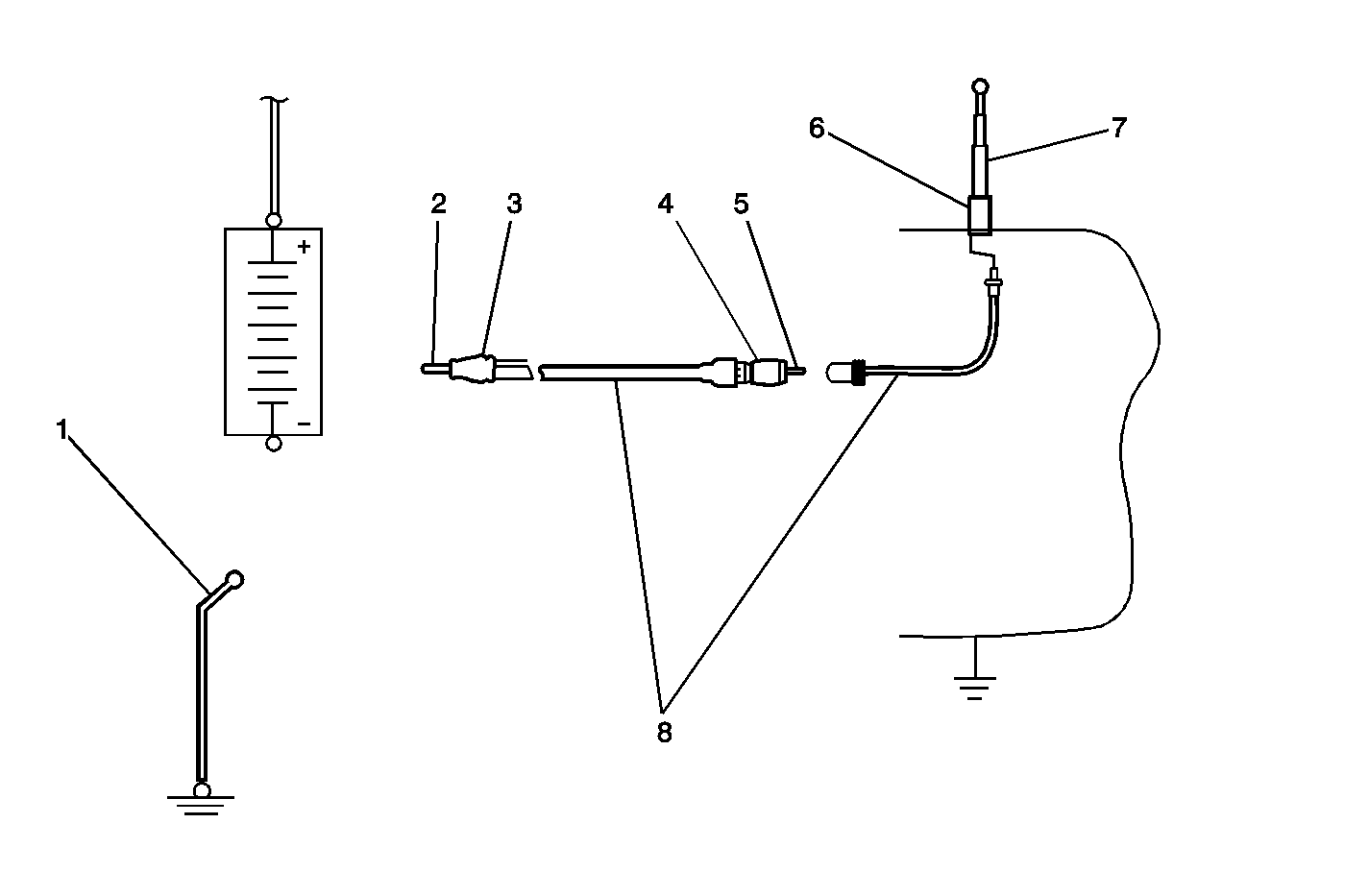Schematic Reference:
Radio/Audio System Schematics
Diagnostic System Check - Entertainment System
Always perform the Radio/Audio System Diagnostic System Check before proceeding
with these diagnostic procedures. Refer to
Diagnostic System Check - Entertainment System
.
Antenna System Test
Important: Always zero out the DMM before taking a resistance measurement in order to ensure
an accurate reading.
- Disconnect the negative battery cable.
- Disconnect the antenna lead-in connector from the radio receiver.
- Measure the resistance from the negative battery cable to the coax outer
conductor connector.
- The resistance measured should be 0.20 ohms or less.
- Test the following when the resistance is greater than 0.20 ohms.
| • | Base of the antenna for a poor connection to body ground. |
| • | The coaxial cable interconnects for a poor connection or corrosion. |
| • | Test for an open or high resistance from the battery negative cable to
the body. Refer to
Circuit Testing
and
Wiring Repairs
in Wiring Systems. |
- After finding and correcting the condition, operate the system in order
to verify the repair.
Perform the Antenna Checking Procedures after confirming the integrity of the
antenna ground.
Antenna Checking Procedures
Perform the following tests for the type of antenna on the vehicle.
Mast Antennas
Unplug antenna lead-in connector from radio receiver and plug a test antenna
into radio. Make sure antenna base is grounded to the vehicle chassis and keep hands
off the mast.
Check radio reception in an area away from electrical interferences. Tune to
several weak and strong AM and FM stations. If the radio reception improved, the problem
exists with the antenna and/or lead-in cable. If the reception is still poor, refer
to
Audio System Troubleshooting Hints
.
Important: Always zero out the DMM before taking a resistance measurement in order to ensure
an accurate reading.
Mast Antenna System


